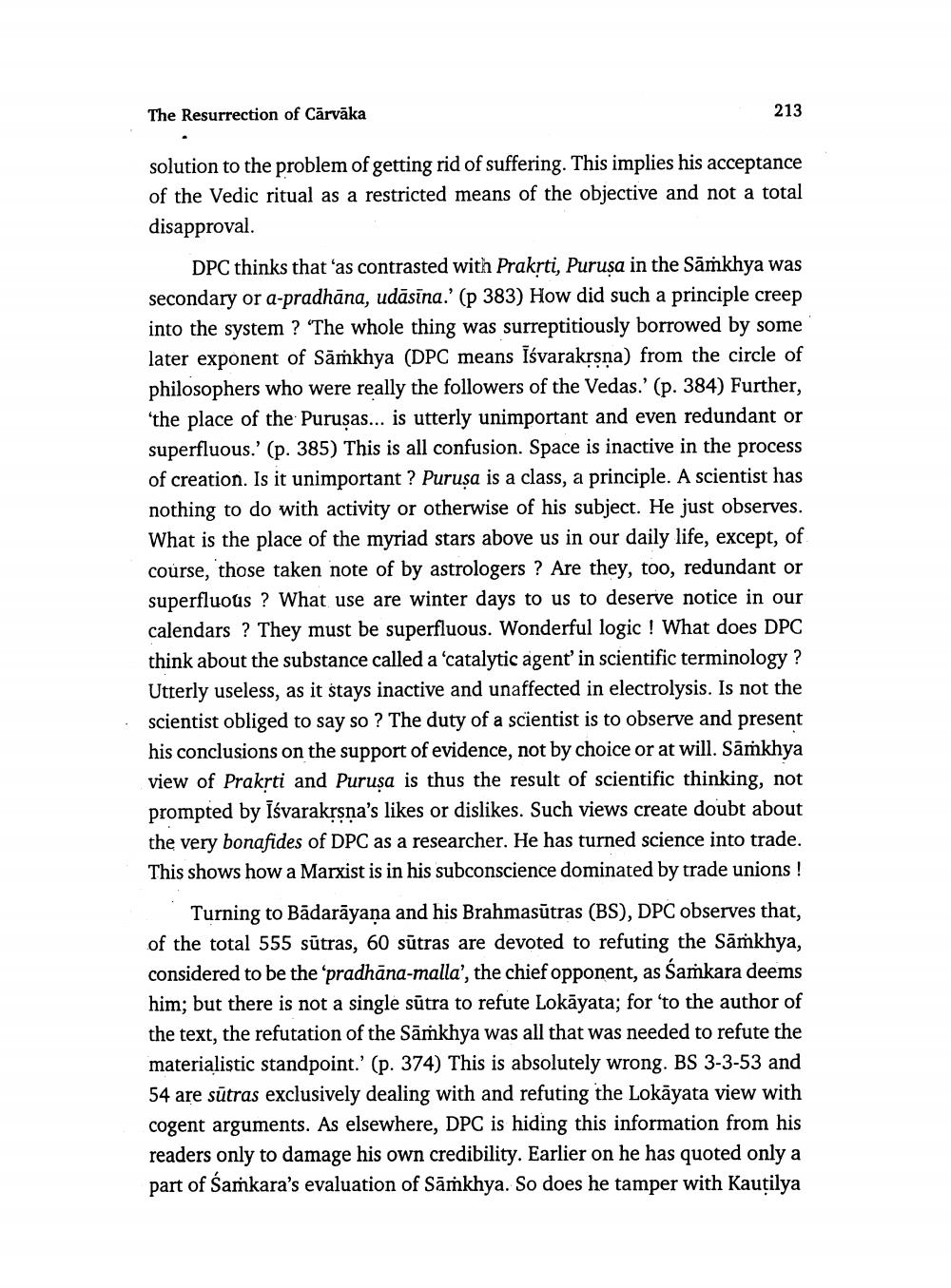________________
The Resurrection of Cārvāka
213
solution to the problem of getting rid of suffering. This implies his acceptance of the Vedic ritual as a restricted means of the objective and not a total disapproval.
DPC thinks that ‘as contrasted with Prakrti, Purusa in the Samkhya was secondary or a-pradhāna, udāsīna.' (p 383) How did such a principle creep into the system ? 'The whole thing was surreptitiously borrowed by some later exponent of Sāṁkhya (DPC means īśvarakrsna) from the circle of philosophers who were really the followers of the Vedas.' (p. 384) Further, 'the place of the Purusas... is utterly unimportant and even redundant or superfluous.' (p. 385) This is all confusion. Space is inactive in the process of creation. Is it unimportant ? Purusa is a class, a principle. A scientist has nothing to do with activity or otherwise of his subject. He just observes. What is the place of the myriad stars above us in our daily life, except, of course, those taken note of by astrologers ? Are they, too, redundant or superfluous ? What use are winter days to us to deserve notice in our calendars ? They must be superfluous. Wonderful logic ! What does DPC think about the substance called a 'catalytic agent' in scientific terminology ? Utterly useless, as it stays inactive and unaffected in electrolysis. Is not the scientist obliged to say so ? The duty of a scientist is to observe and present his conclusions on the support of evidence, not by choice or at will. Samkhya view of Prakrti and Puruşa is thus the result of scientific thinking, not prompted by iśvarakrsna's likes or dislikes. Such views create doubt about the very bonafides of DPC as a researcher. He has turned science into trade. This shows how a Marxist is in his subconscience dominated by trade unions !
Turning to Bādarāyana and his Brahmasūtras (BS), DPC observes that, of the total 555 sūtras, 60 sūtras are devoted to refuting the Sāmkhya, considered to be the 'pradhāna-malla', the chief opponent, as Saṁkara deems him; but there is not a single sūtra to refute Lokāyata; for 'to the author of the text, the refutation of the Sāmkhya was all that was needed to refute the materialistic standpoint.' (p. 374) This is absolutely wrong. BS 3-3-53 and 54 are sūtras exclusively dealing with and refuting the Lokāyata view with cogent arguments. As elsewhere, DPC is hiding this information from his readers only to damage his own credibility. Earlier on he has quoted only a part of śamkara's evaluation of Sāṁkhya. So does he tamper with Kautilya




